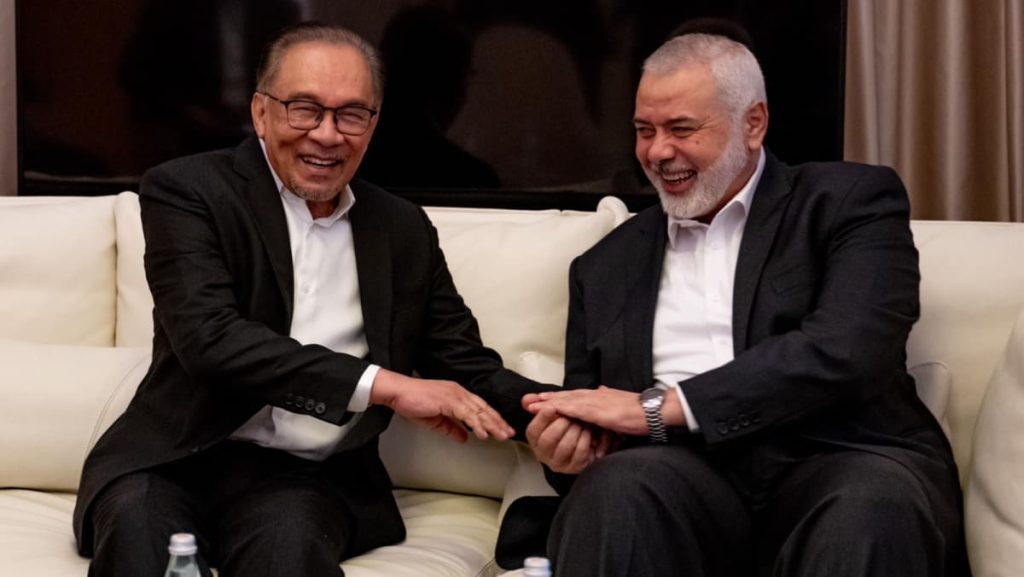Meta Platforms faced criticism for removing Facebook posts by Malaysian media covering Prime Minister Anwar Ibrahim’s meeting with a Hamas leader, Ismail Haniyeh. The Malaysian government, known for its vocal support of the Palestinian cause, warned that action could be taken against Meta and other social media companies if they were blocking pro-Palestinian content. Anwar clarified that his meeting with Haniyeh was not related to Hamas’ military activities, emphasizing his good relations with the group’s political leaders.
The meeting between Anwar and Haniyeh in Qatar marked the first face-to-face interaction between them since Anwar became Malaysia’s prime minister. Anwar had previously met the Hamas leader twice, the most recent encounter being in 2020 when Haniyeh visited Malaysia. The Malaysian government sent a letter to Meta Platforms seeking an explanation for the removal of posts by two media organizations covering the meeting, as well as the closure of a Facebook account belonging to the Malaysia Gazette, which focuses on Palestinian issues.
In response to the backlash, a Meta spokesperson stated that two posts had been removed in error and were subsequently restored. The incident highlights the delicate balance that social media companies must strike between ensuring content upholds community standards and avoiding censorship of newsworthy events. The restoration of the posts indicates Meta’s commitment to rectifying mistakes and supporting freedom of media coverage. Meta’s actions may prevent further tension with the Malaysian government over perceived censorship of content related to Palestinian issues.
The controversy surrounding the removal of Facebook posts related to Anwar’s meeting with Haniyeh underscores the broader challenges faced by social media platforms in navigating political sensitivities and ensuring transparent content moderation policies. As governments worldwide increasingly scrutinize the role of social media companies in regulating information, incidents like this serve as a reminder of the need for clear guidelines and accountability mechanisms. Meta’s engagement with Malaysian authorities following the incident could lead to improved communication and collaboration on content moderation issues in the future.
Anwar’s diplomatic engagement with Hamas, a group classified as a terrorist organization by some countries, raises questions about Malaysia’s foreign policy priorities and its stance on international relations. By maintaining ties with controversial groups like Hamas, Malaysia’s government risks facing criticism and potentially damaging its reputation on the global stage. The restoration of Facebook posts related to Anwar’s meeting with Haniyeh indicates a willingness on Meta’s part to address concerns about political censorship and ensure that media coverage remains transparent and accessible to the public.
Overall, the incident involving the removal and subsequent restoration of Facebook posts by Malaysian media covering Anwar Ibrahim’s meeting with Ismail Haniyeh highlights the complexities of content moderation on social media platforms. As governments, media organizations, and the public scrutinize the influence of tech companies on free speech and information dissemination, incidents like this underscore the importance of transparent communication and cooperation between stakeholders. By rectifying the error and restoring the posts, Meta Platforms has taken a step towards addressing concerns about censorship and supporting media freedom in the digital age.


